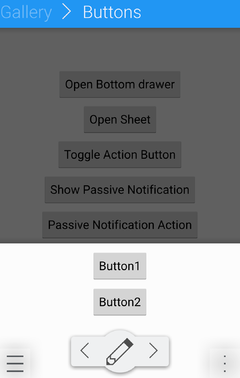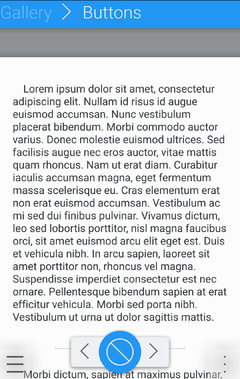KDE Visual Design Group/KirigamiHIG/CommandPatterns/Dialogs: Difference between revisions
(First version) |
m (Added missing )) |
||
| Line 18: | Line 18: | ||
=== Dialog Sheet === | === Dialog Sheet === | ||
Consider using the [[../ActionButtons | Primary Action Button]] to execute the main action within the dialog (e.g. saving edits made in the dialog or to close the dialog if there is no main action. | Consider using the [[../ActionButtons | Primary Action Button]] to execute the main action within the dialog (e.g. saving edits made in the dialog or to close the dialog if there is no main action). | ||
== Implementation == | == Implementation == | ||
Revision as of 17:01, 17 June 2016
Dialogs
When to use
- Use a Bottom Drawer to present actions for a quick choice, for example a yes/no question or several different variants of executing an action
- Use a Dialog Sheet to present information or actions without leaving the current context (e.g. for editing properties of an object in the current context, opening a file etc.)
How to use
Be aware that both Dialog Sheet and Bottom Drawer can be closed simply by swiping, make sure that this does not leave your application in an undefined state.
Bottom Drawer
Make sure that your actions fit into the drawer and are not overlapped by Action Buttons.
Dialog Sheet
Consider using the Primary Action Button to execute the main action within the dialog (e.g. saving edits made in the dialog or to close the dialog if there is no main action).
Implementation
For the Dialog Sheet, use org::kde::kirigami::OverlaySheet
TODO: Bottom Drawer


